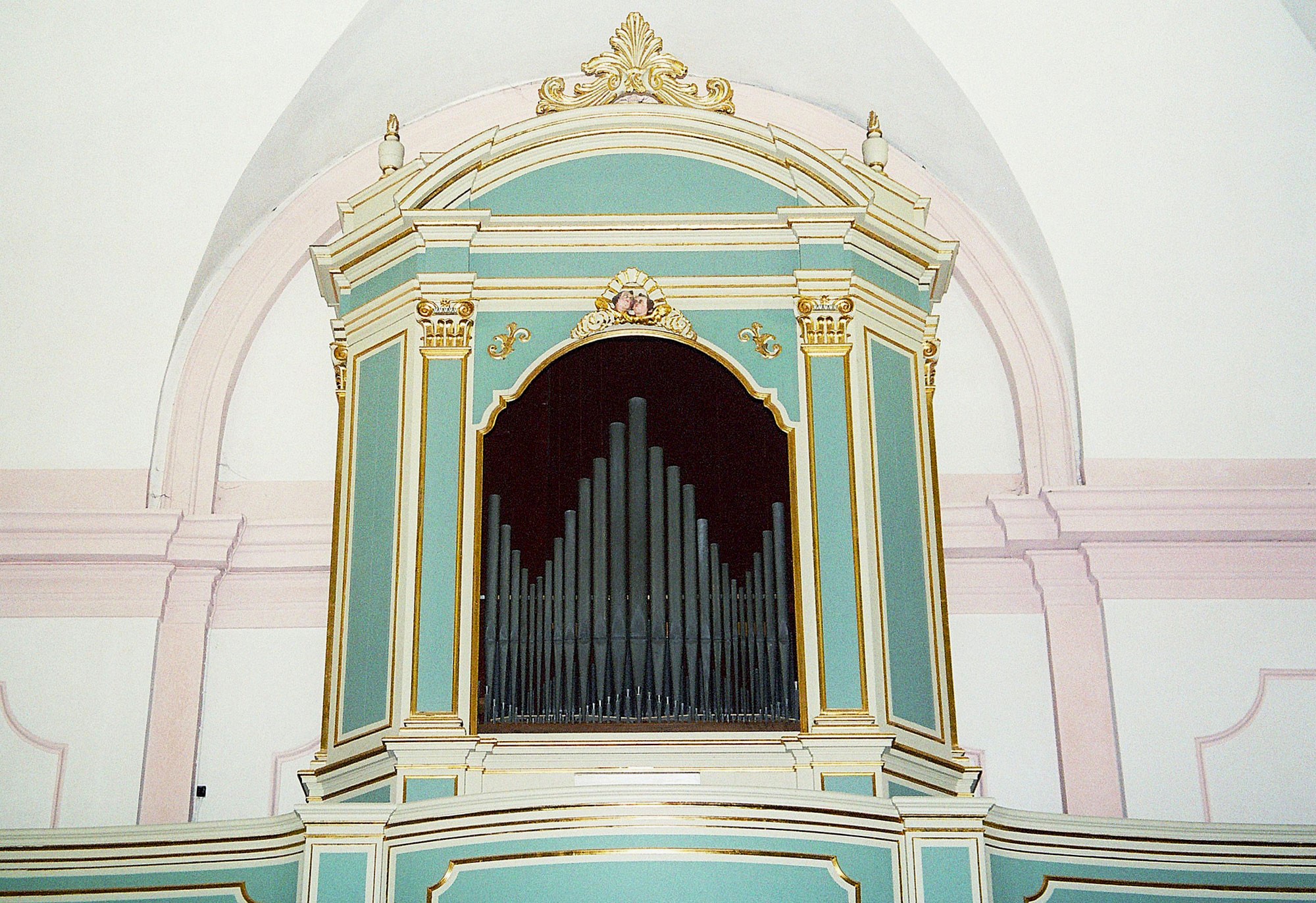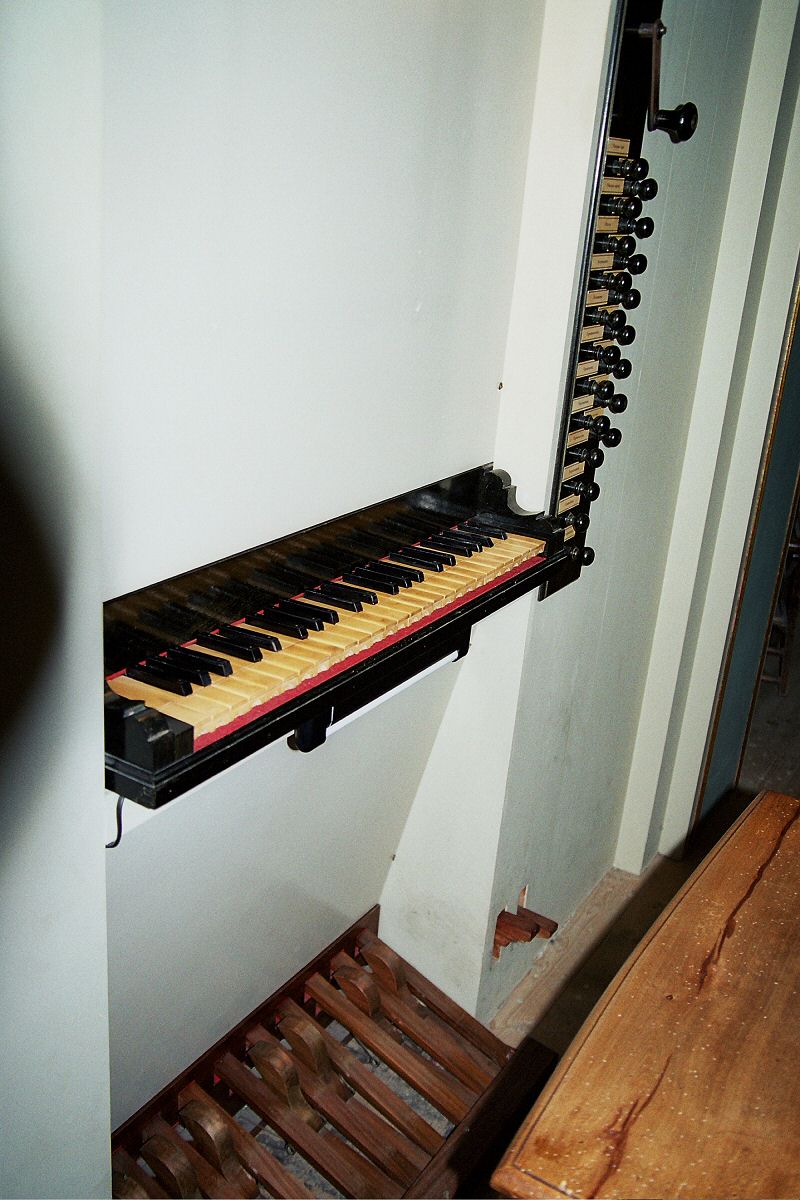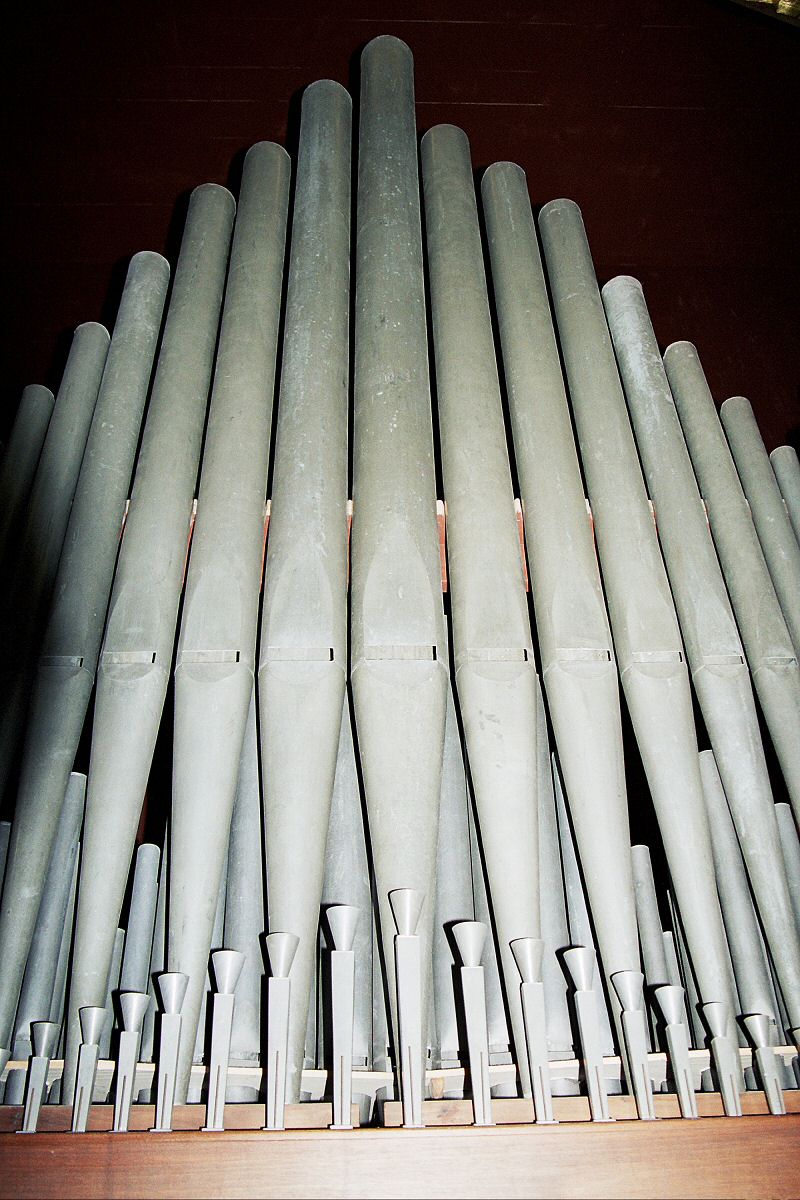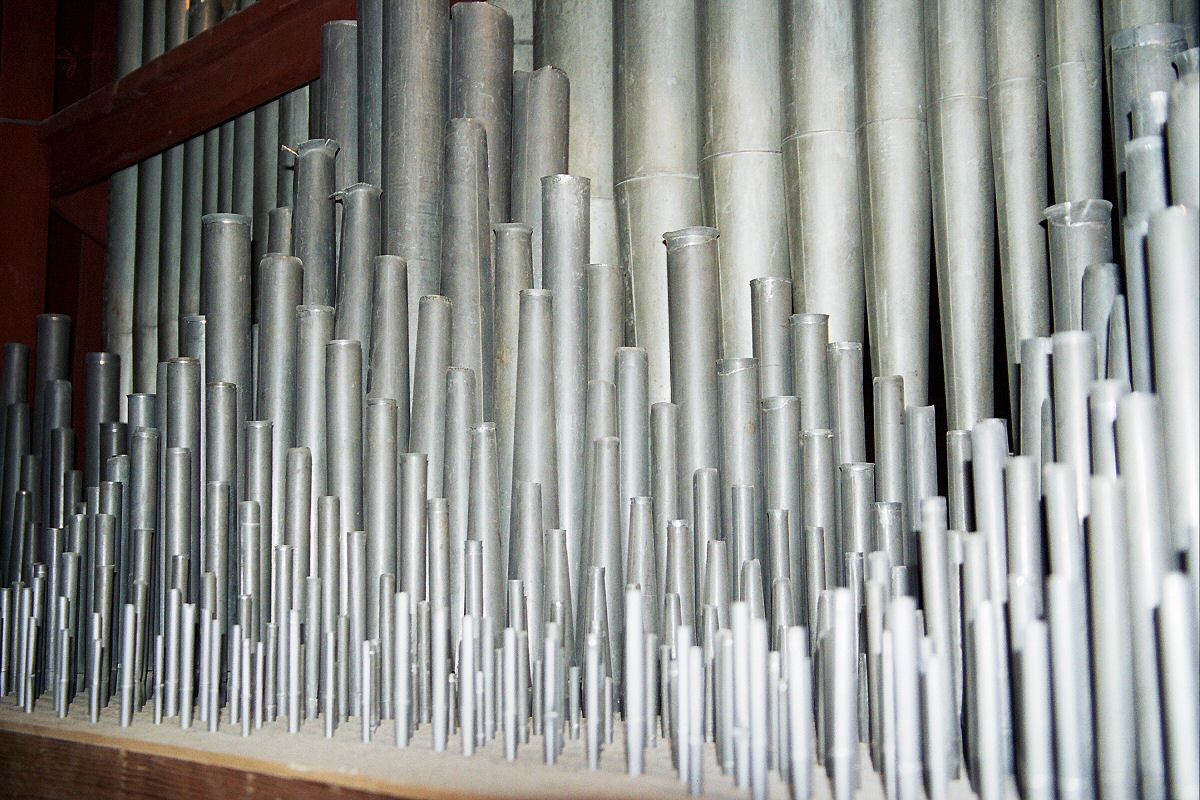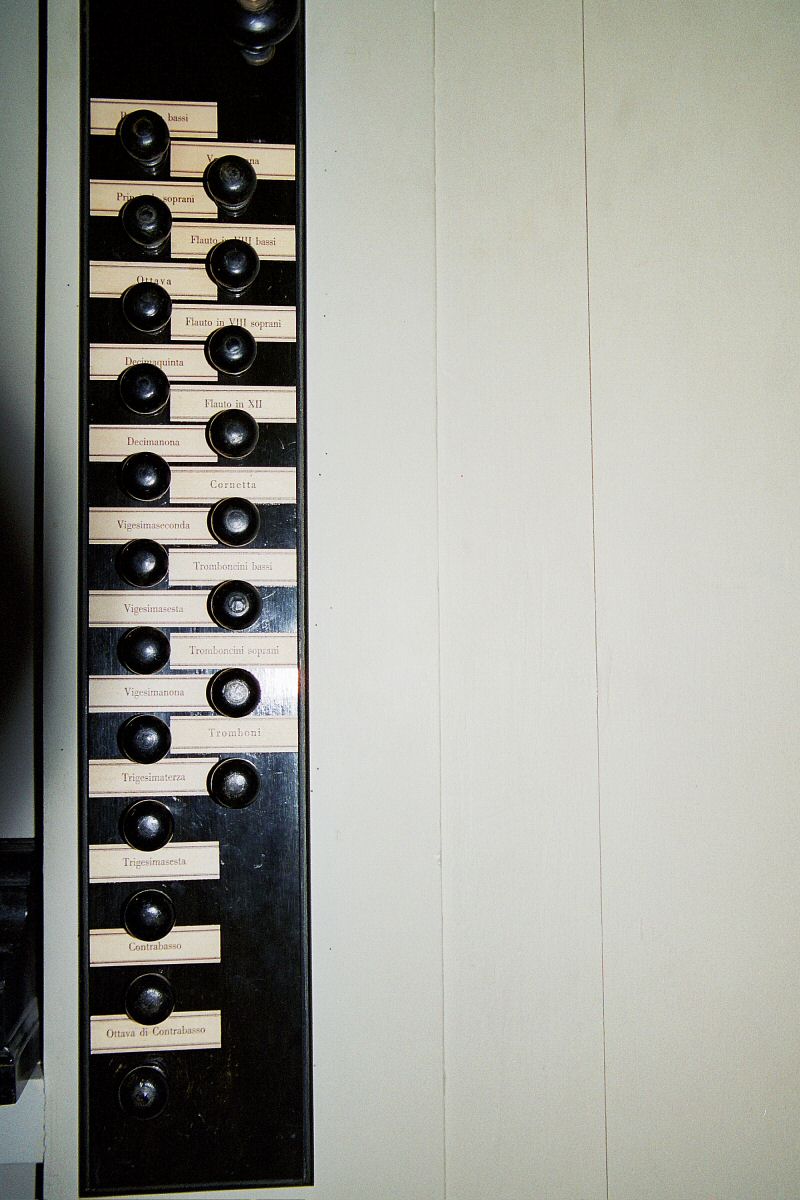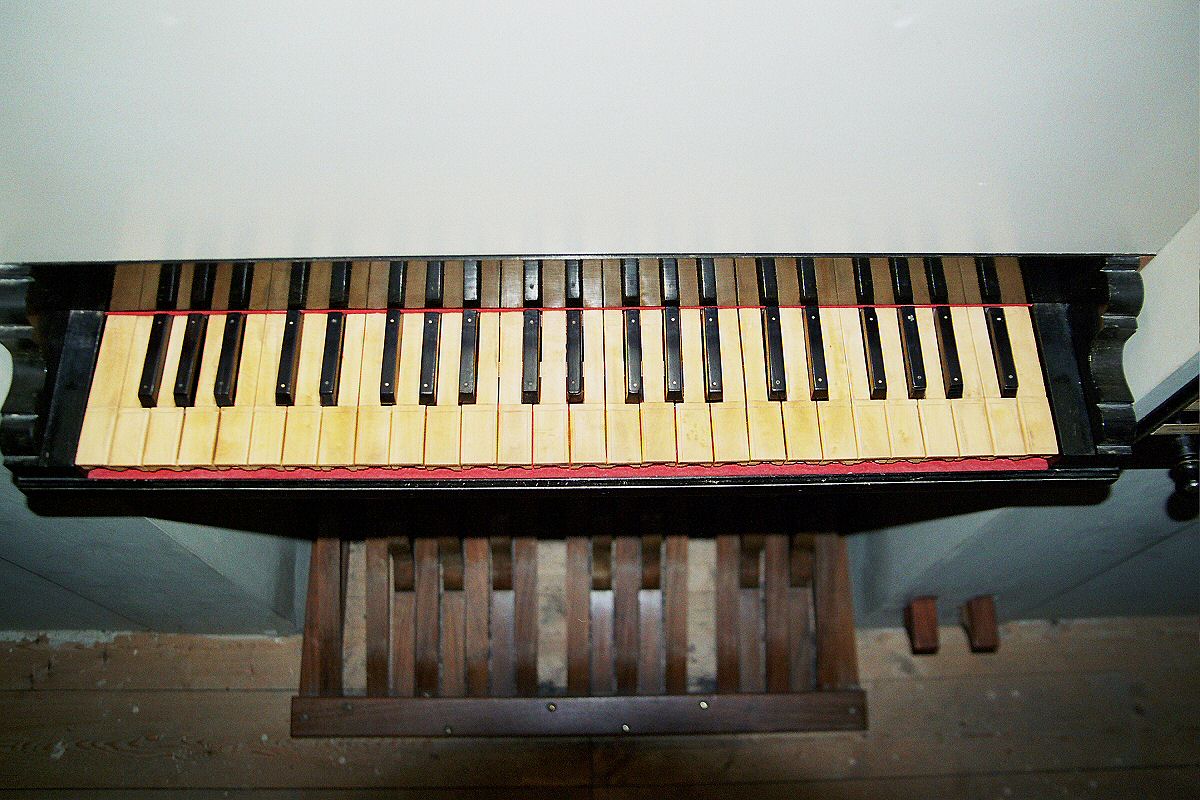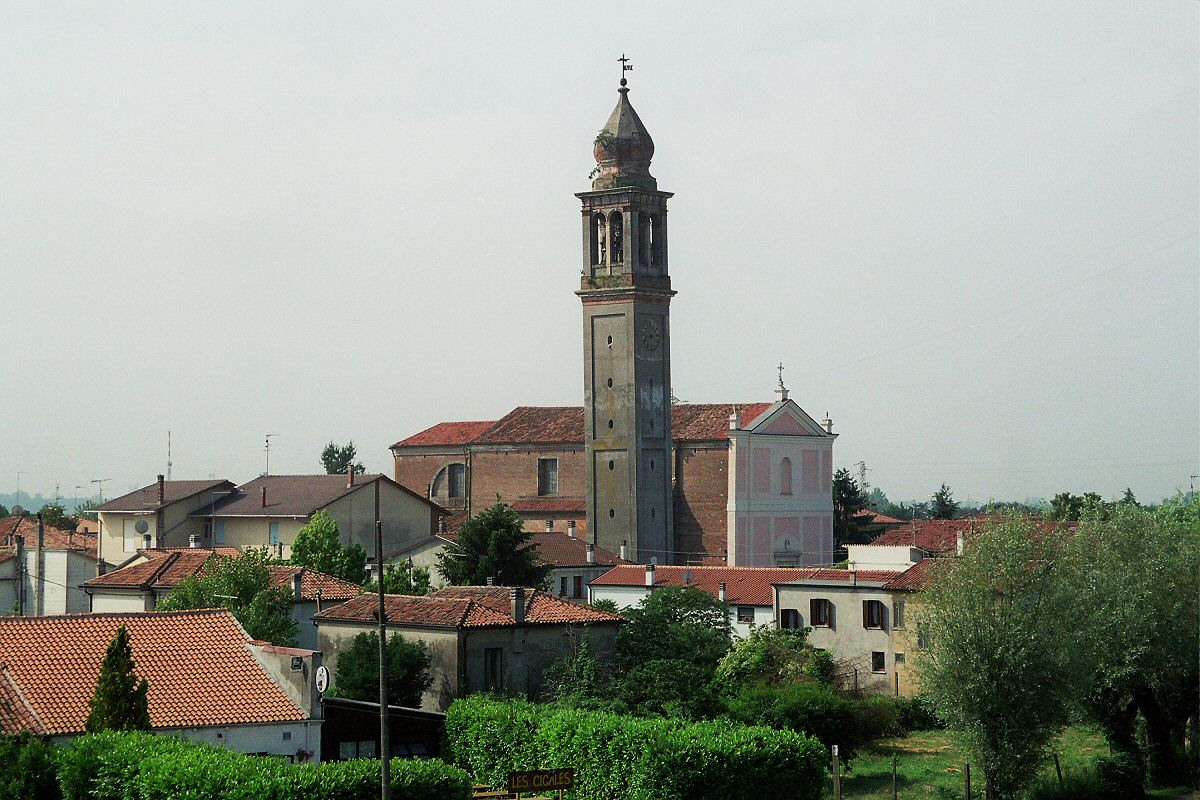Boara Polesine, Chiesa di San Zenone
| Builder | G. Callido |
|---|---|
| Year | 1780 |
| Period/Style | Baroque |
| Stops | 19 |
| Keyboards | 1+P |
| Keyaction | tracker/mechanical |
| Tuning | Equal at 440 Hz |
| Sampleset |
Available
 , sampled by
OrganArt Media
, sampled by
OrganArt Media
|
The Gaetano Callido organ located in St. Zenone Church in Boara Polesine, Veneto, is a prime example of the craftsmanship of the renowned Venetian organ builder. Built in 1780, the organ remains largely untouched, preserving its original features and components except for a few modifications, such as the replacement of the stolen Trombone pipes from the pedal board during World War II. Notably, this organ retains its historical split keyboard layout and features a "scavezza" or short first octave, which is characteristic of historic Italian organs. Its stops, including a unique 7 rank Ripieno extending to Trigesimasesta and a Tromboncini 8' resembling a small Regale, are divided into bass and treble sections, enhancing its versatile sound profile.
The organ underwent a significant restoration in 1992 by Alfredo Piccinelli, a specialist in Callido organs, who adjusted it to equal temperament—a tuning not originally used by Callido, who preferred a Tartini-Vallotti tuning. This restoration aimed to preserve the organ’s luminous and clear sound, facilitated by the unusually low wind pressure typical of Italian historic organs. Following the restoration, the organ case was also altered for better visibility. Today, the organ, with its rich and vibrant sound palette, stands as a testament to Callido’s mastery and the enduring appeal of Italian organ design, set against the backdrop of the church's resonant acoustics, marked by a lengthy 4.5-second reverberation.
The organ underwent a significant restoration in 1992 by Alfredo Piccinelli, a specialist in Callido organs, who adjusted it to equal temperament—a tuning not originally used by Callido, who preferred a Tartini-Vallotti tuning. This restoration aimed to preserve the organ’s luminous and clear sound, facilitated by the unusually low wind pressure typical of Italian historic organs. Following the restoration, the organ case was also altered for better visibility. Today, the organ, with its rich and vibrant sound palette, stands as a testament to Callido’s mastery and the enduring appeal of Italian organ design, set against the backdrop of the church's resonant acoustics, marked by a lengthy 4.5-second reverberation.
| Manual | Pedal (always attached) |
|---|---|
| Principale bassi | |
| Principale soprani | |
| Ottava | |
| Quintadecima | |
| Decimanona | |
| Vigesimaseconda | |
| Vigesimasesta | |
| Vigesimanona | |
| Trigesimaterza | |
| Trigesimasesta | |
| Flauto in VIII bassi | |
| Flauto in VIII soprani | |
| Flauto in XII | |
| Cornetta | |
| Voce umana | |
| Tromboncini bassi | |
| Tromboncini soprani | |
| Contrabasso (+ Ottava) | |
| Tromboni (+ Contrabasso+ Ottava) |
Cavazzoni HjmnusAveMarisStella
0:00
0:00
Zipoli Pastorale
0:00
0:00
G.Gabrieli CanzonII
0:00
0:00
https://www.organartmedia.com/en/gaetano-callido
 Pipe Organ Map
Pipe Organ Map